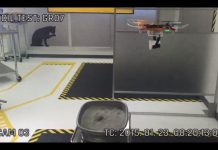International experts will discuss these issues at an English-language virtual panel discussion organised by the German National Academy of Sciences Leopoldina on Wednesday, 15 July, 11:00 a.m. to 12:15 p.m CEST. We cordially invite you to this event and would appreciate an announcement of this date in your medium.
Virtual Panel Discussion
“Contact Tracing Apps: Promising Tool in the Fight against COVID-19?
Wednesday, 15 July 2020
10:00 am-11:15 am BST (London & Dublin)
11:00 am-12:15 pm CEST (Berlin)
6:00 pm-7:15 pm KST (Seoul)
Debating at the podium:
– Sir Jonathan Montgomery, Professor of Healthcare Law, University College London, Chair of Oxford University Hospitals NHSFT and Non-executive Director of Health Data Research UK
– Judith Simon, Professor of Ethics in Information Technology, University of Hamburg and member of the German Ethics Council
– Douglas Leith, Professor of Computer Systems, Trinity College Dublin and founder of the Hamilton Institute, National University of Ireland at Maynooth
-Myongsei Sohn, Professor of Public Health and Executive Director, Institute for Global Engagement and Empowerment at Yonsei University of Seoul, South Korea
The panel will be moderated by Regina T. Riphahn, Vice President, German National Academy of Sciences Leopoldina and Professor of Statistics and Empirical Economics, University of Erlangen-Nuremberg, Germany.
Further information can be found at: http://www.
The event is open to all interested parties. Participation is free of charge. Prior registration is required via the following link: https:/
After successful registration, you will receive a confirmation e-mail with a dial-in link for the webinar and a password. You will also receive information on how to dial into the event by phone. When using the ZOOM video conferencing system, the privacy policy of the provider applies: https:/
About the German National Academy of Sciences Leopoldina
As the German National Academy of Sciences, the Leopoldina provides independent science-based policy advice on matters relevant to society. To this end, the Academy develops interdisciplinary statements based on scientific findings. In these publications, options for action are outlined; making decisions, however, is the responsibility of democratically legitimized politicians. The experts who prepare the statements work in a voluntary and unbiased manner. The Leopoldina represents the German scientific community in the international academy dialogue. This includes advising the annual summits of Heads of State and Government of the G7 and G20 countries. With 1,600 members from more than 30 countries, the Leopoldina combines expertise from almost all research areas. Founded in 1652, it was appointed the National Academy of Sciences of Germany in 2008. The Leopoldina is committed to the common good.
###
TDnews














